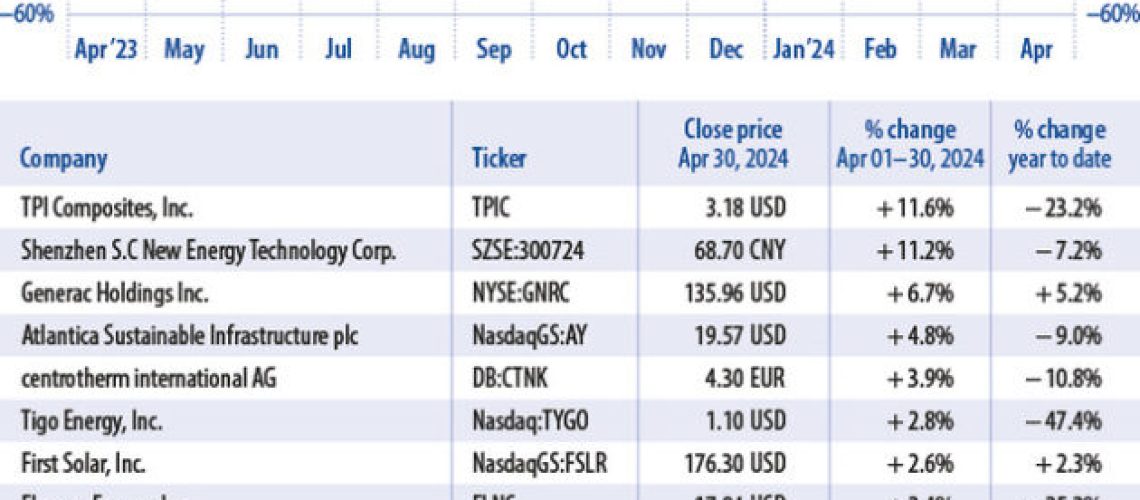Financial and regulatory uncertainty plus rising module prices are affecting project timelines in the United States and domestic companies must contend with a gray market at home and aggressive pricing abroad. Jesse Pichel, of Roth Capital Partners, explores the key trends in a tough month for US solar stocks.
From pv magazine 6/24
The Invesco Solar exchange-traded fund (ETF) underperformed compared to other stock indexes in April 2024. The solar ETF was down 11% and the S&P 500 and DJIA decreased 4%. That fall followed a 3% gain for the Invesco Solar ETF in March 2024.
The top three performing April 2024 solar-related stocks in the United States were Atlantica Sustainable Infrastructure plc, up 5%; First Solar, Inc. up 3%; and Clearway Energy, Inc., up 1%. The three worst were Maxeon Solar Technologies, falling 39%; Daqo New Energy Corp., down 32%; and SunPower Corp., down 29%.
Residential solar stocks dropped 18% in April 2024, having dropped 2% in March 2024. This extended the 2024 fall for residential solar stocks to 44%. The companies in this measure are Enphase Energy Inc., SolarEdge Technologies., Sunnova Energy International Inc., and Sunrun Inc.
The situation was similar for utility scale solar equipment stocks, down 15% in April 2024 and 22% year to date. The companies in this measure are Array Technologies Inc., Shoals Technologies Group Inc., NEXTracker Inc., FTC Solar Inc., and First Solar Inc.
Independent power producers (IPP) fared better than utility scale or solar stocks. IPPs were down 8% for April 2024 and 22% year to date. This was despite poor performances from Emeren Group Ltd. (-22%) and Altus Power, Inc. (-24%).
The US solar industry is experiencing a gray market for discounted Enphase products, fueled by large installers and rising competition from other microinverter brands. Chinese manufacturers are pricing and financing utility scale battery storage, challenging international firms.
For utility scale projects, rising module prices and uncertainty about retroactive duties are causing delays. Some firms have reassessed plans. Distributors are hesitant to take on new stock, leading to slower inventory clearance, contributing to market disruption. Within the IPP sector there has been an uptick in merger and acquisition activity, however.



